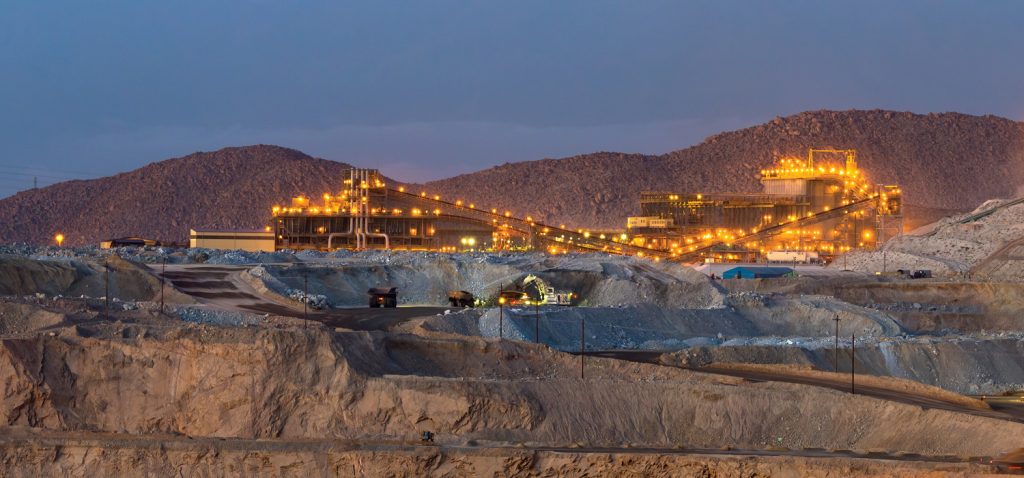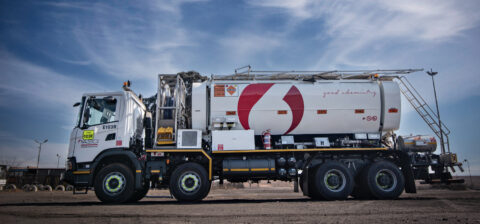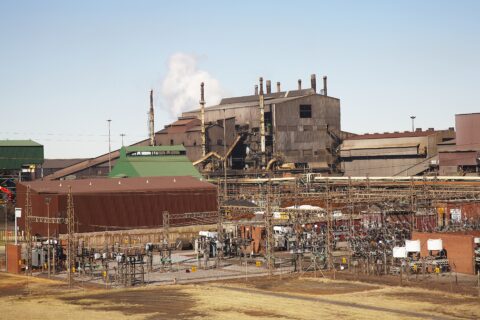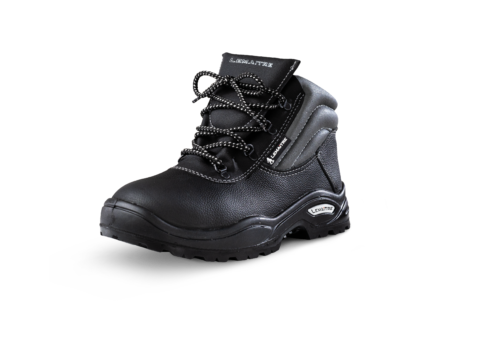SA Mining
Geoscience Act
Mining is a big, expensive business. To actually take a greenfields project from nothing to bankable feasibility and all the way to actual mining is an expensive exercise. It’s funded by investors who have the appetite for such a risk or gamble that millions of dollars can be sunk into the ground to find nothing.
It is therefore no surprise that information on a mineral resource is closely guarded intellectual property of the explorers.
In South Africa the Geoscience Act makes provision for the Council for Geoscience to serve as the national custodian for geotechnical, prospecting and all other geoscientific information relating to the earth, the marine environment and geomagnetic space, all of which must be lodged with the council.
The Mineral and Petroleum Resources Development Act (MPRDA) also makes provision for the lodging of data with the council. The Council for Geoscience’s objectives are to promote the search and exploitation of minerals in the country, undertake research in the field of geoscience, act as a national advisory on geohazards to infrastructure and development and geo-environmental pollution brought about by mineral exploitation and other actives, and provide specialised geoscientific services.
The council is represented by a board that consists of a chairperson and officials appointed by the mineral resources minister from the departments of water and sanitation, rural development and land reform, as well as human settlements, science and technology, Treasury, and four people with appropriate experience or knowledge.
Although the Geoscience Act specifically prohibits the council from undertaking any mining development for itself or any research on behalf of any private institution that would favour another in acquiring an asset, the holders of prospecting rights are required to submit progress reports and data relating to their prospecting operations to the Department of Mineral Resources and Energy (DMRE) and the Council for Geoscience.
No person may dispose of or destroy any record, borehole core data or core-log data except in accordance with the direction of the DMRE in consultation with the council. These records are not generally accessible to the public.
Recently the mineral resources and energy minister published draft regulations for public comment that would require extensive disclosure of prospecting and mining information by rights holders and non-right holders.
If enacted, these draft regulations would require all onshore and offshore prospecting geoscience data and info (e.g. technical reports, progress reports and prospecting reports) on reconnaissance and prospecting to be lodged annually by the right holder from date of grant or within 30 days of it lapsing.
There is a regulation titled “lodgment of all onshore and offshore geoscience data and information, not related to reconnaissance and prospecting”. Although it was not specified, I believe this provision was supposed to apply mutatis mutandis in respect of mining rights and mining permits.
All onshore and offshore geoscience data and info collected by any non-right holder would need to be lodged as well. Non-rights holders include South African and foreign governments, and private and public entities. Any foreign entity that undertakes geosciences research would need to inform the council within 60 days, and submit a report of their research within an agreed time frame of completion of research. It doesn’t mention by when South African non-rights holder entities need to submit geoscience data and information it collected.
All historical onshore and offshore prospecting and reconnaissance geoscience data (e.g. technical reports, progress reports and prospecting reports) that is more than 15 years old would need to be lodged within 18 months of the commencement of the draft regulations. This obligation also seems to apply to any person (private/public, including foreign governments and entities).
The MPRDA already has some disclosure obligations with respect to prospecting. Firstly, the holder of a prospecting right or reconnaissance permission is required to keep and submit proper records of their operations, submit annual progress reports and data, and submit a further report on expiry of the right, to the regional manager of the DMRE. That manager must submit this to the council.
Secondly, no closure certificate may be issued unless the Council for Geoscience has confirmed in writing that complete and correct prospecting reports in terms of s21 of the MPRDA have been submitted, and complete and correct borehole core data or core-log data that the council deems relevant has been lodged.
In the case of a (mining) right or permit holder, the complete and correct surface and relevant underground geological plans must have been lodged.
Lastly, s30(5) of the MPRDA requires all information submitted to the Council for Geoscience (by the holder) in terms of s21 of the MPRDA to be kept confidential until such right prospecting right/reconnaissance permission has lapsed, is cancelled, or terminated, or the area they relate to has been abandoned or relinquished.
S30(3) of the MPRDA entitles holders and applicants to specify which information may be disclosed and what must be treated as confidential and remain undisclosed.
Although the council may take information into custody except where another law imposes a restriction on the publication or display of such information, the way that the current draft regulation is phrased, all geoscience data and information may be made accessible and disseminated and made available on written request (of anyone). This includes information submitted in terms of the Geoscience Act as well as the MPRDA.
This conflicts with s30 of the MPRDA and is ultra vires section 6(2) of the Geoscience Act. The regulations contain no secrecy or confidentiality provision regarding documents, information, and particulars so provided. This would be a huge hindrance to trying to sell exploration projects. Keep in mind that the Geoscience Act already allows the council to produce and sell reports, maps, computer programs and other intellectual property which it generates from its research.
Although nothing stops owners of information from monetising and selling the data, they can’t warrant/guarantee that the info is and will remain confidential/secret. The Council of Geoscience would end up being the biggest competitor of other explorers. This could deter investors from investing in exploration companies in South Africa. After all, investors of exploration companies are investing to gather data.







 Sign-up and receive the Business Media MAGS newsletter OR SA Mining newsletter straight to your inbox.
Sign-up and receive the Business Media MAGS newsletter OR SA Mining newsletter straight to your inbox.